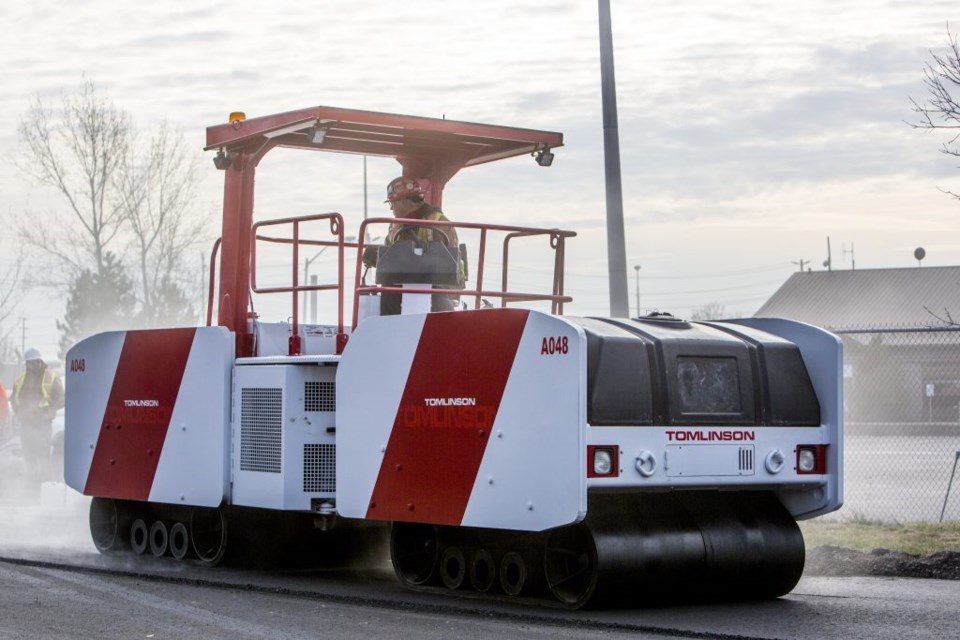City officials have their eyes on an asphalt-compacting technology that could eliminate small cracks that lead to potholes.
Developed in the early 1980s by Prof. Abd El Halim at Ottawa's Carleton University, the alternative asphalt roller design initially attracted little interest from equipment manufacturers.
But the Ontario Ministry of Transportation (MTO) has been recently studying the idea and last June, Ward 3 Coun. Matthew Shoemaker and then-Ward 1 Coun. Steve Butland asked the city to look into it.
Since the asphalt paving steamroller was invented in 1860, the basic design using two heavy metal drum-rollers has changed little.
Watching his wife roll pizza dough, Halim came up with the idea of using a rubber belt system to compact hot-mix asphalt, preventing the tiny cracks found in freshly laid asphalt.
"The freeze-thaw action of the water and repetitive traffic loading on the water-filled cracks can become potholes," says Don Elliott, the city's director of engineering.
Halim named his souped-up steamroller the Asphalt Multi-Integrated Roller (AMIR), after his son Amir.
He's persuaded Ottawa-based transportation infrastructure firm R.W. Tomlinson Ltd. to build an advanced prototype of the machine and the Ministry of Transportation has authorized demonstrations.
The following points are from a report by Elliott to Mayor Provenzano and city councillors:
- the AMIR asphalt roller is a non-vibratory roller that has demonstrated it can produce a crack-free, low permeability asphalt surface, especially on bridge decks
- early AMIR test sections showed benefits, but challenges were encountered with low productivity and the rollers picking up material from the surface. MTO quality assurance and material engineering research offices endorsed further trials to see if the roller pick-up issue could be addressed
- Carleton University was retained to seek solutions to the roller pick-up problem. Carleton University has completed the study and the recommended improvements have been made
- a demonstration has been set up for MTO staff to observe the improved AMIR and confirm whether the pick-up problem has been addressed and that the AMIR is ready for use on further trials
- once satisfied, the ministry is planning to construct some asphalt test sections on bridge-deck paving contracts, where the AMIR asphalt roller will be used to compact the asphalt
Elliott has promised to keep in touch with MTO officials about the AMIR technology.
"If this method becomes the preferred standard, it will be specified on city contracts," he says.
Prof. Amir can be seen discussing his invention below, in a 2018 CBC interview.
The experimental paving technology is on the agenda for Monday's meeting of City Council.
The meeting will be livestreamed on SooToday starting at 4:30 p.m.
